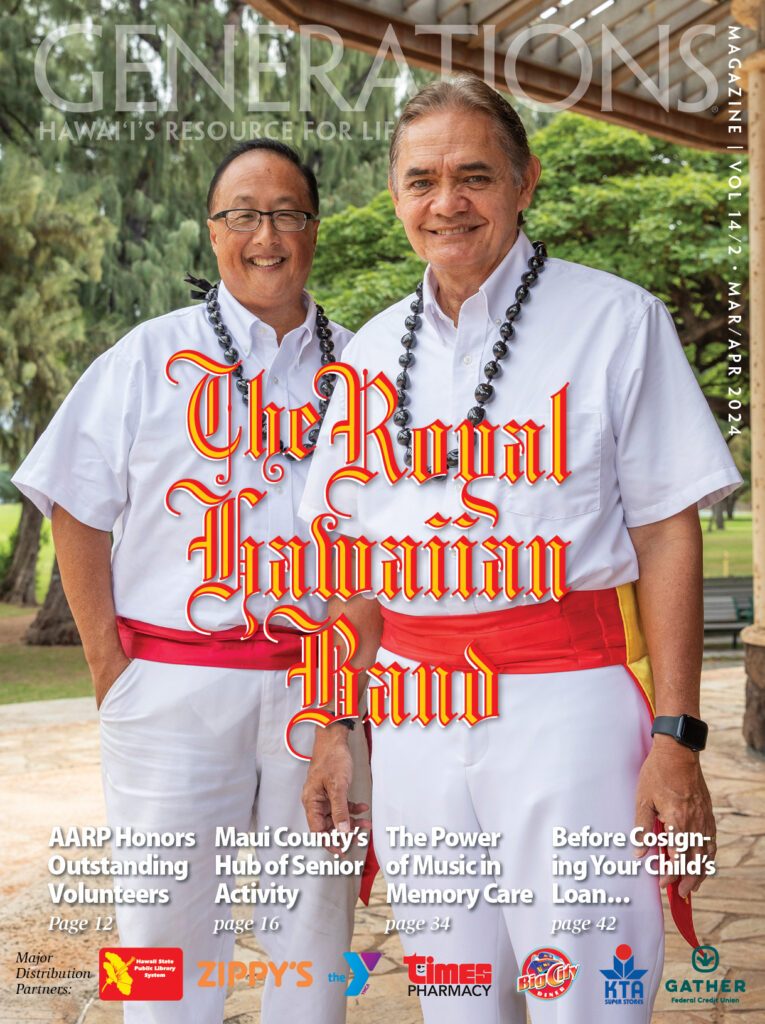My mother had always been a healthy, determined and spirited woman who was guided by her faith. With a high degree of humor and a strong work ethic, my mother, Tokiko Suda, along with my father, Sakae, raised four children and operated several restaurants in Honolulu. She had always been a source of inspiration and strength for me as I saw her and my father work six days a week, 14 to 16 hours a day for over 25 years.
And so it was with great heartache and sadness that my mother began to demonstrate symptoms of dementia at age 97. She had become paranoid, despondent and forgetful, and had lost interest in the activities and routines of the day that were once of great importance to her. Her spirit was waning. Our pillar of strength was weakening.

Tokiko Suda (center) with sons Barry and Brian.
As the dementia advanced, my mother needed more assistance with eating, bathing, getting dressed, going to the bathroom and other daily living activities. What were once basic, everyday tasks became an undertaking that required a significant amount of time, strength and stamina from both my mother and me.
Just as important as providing help with these daily tasks is the ability to be patient and compassionate with those suffering from dementia. I think most people, like myself, have some level of compassion and sympathy for their ailing loved ones. But it was patience that I had lacked…
Due to my mother’s advanced age, osteoporosis and dementia, she wasn’t able to do simple daily living activities as quickly and efficiently as she was once able to. I was aware of what she was and wasn’t capable of doing for herself, but there were times when it would slip my mind and I would become impatient with her. I would raise my voice and ask her to hurry when she had to be dropped off at the adult day health program that she attended.
But even with my impatience and frustration apparent in my tone, my mother never expressed dissatisfaction with my behavior. She would always say that she was thankful for what her family was doing for her and acknowledged that she was very fortunate. She would then laugh at her inability to do some things that were once second nature to her.
My mother’s gratitude and sense of humor during these trying moments showed me that she was managing her situation the best way possible. I would come to understand that she had been demonstrating her patience with my shortcomings by quietly reminding me that she was thankful and appreciated each day with us.
Her great attitude gave me the ability to be a little more patient with all matters and served as a reminder of how humor is good for your well being. We will all get older one day and we may not be as independent as we once were. When that time comes, I will strive to remember to appreciate the patience of others.

